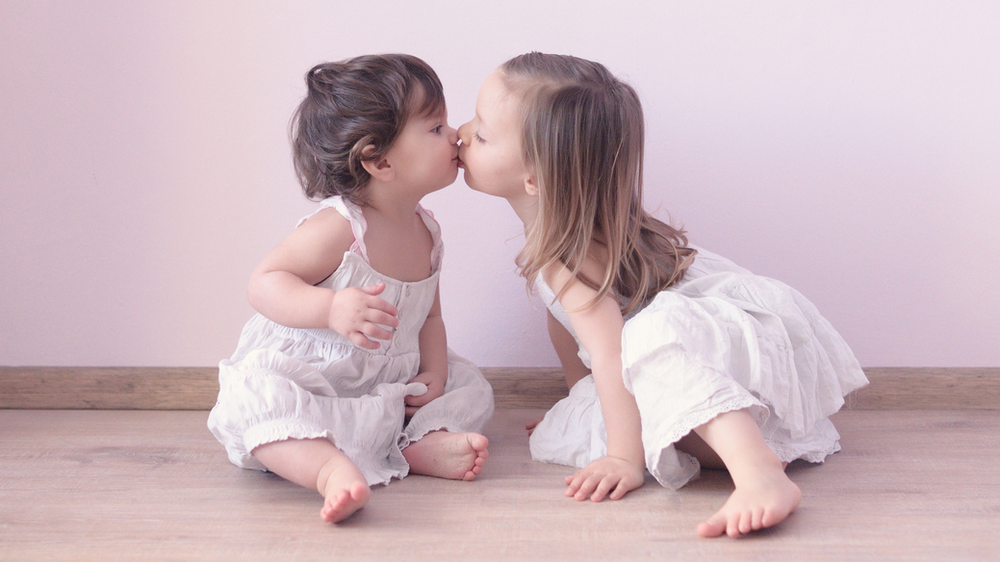
The Freedom to Interact with Others reflects one of Montessori's Tendencies of Humans: the Tendency toward Communication. We understand that part of the nature of human development is to engage and interact with other humans, to come into union with them, to learn together, make meaning together, progress together. And we understand that this drive is particularly critical in the early years of life, when we seek to surround children with language rich environments and highly responsive caregivers. Knowing the human drive to interact with other humans is inherent, the Montessori prepared environment prioritizes it and protects it by design.
For example, look at the tiny table in most Montessori Infant classrooms. Even though children are preverbal, we provide space for them to interact with each other over common activities. Rather than a line of highchairs from which each infant can only interact with the adult who is feeding them, we sit infants at small common tables from which they can see (and motion to, and reach for, and babble at) other children. We respond to this early babble as though we are breaking bread together, acknowledging infant verbalizations and offering them words to describe what they seem to seek.
Look at the time and space allowed in Toddler classrooms for Toddlers to observe, respond and experience new stimuli together. A teacher sitting on the floor reading to one Toddler will make space for another curious Toddler to join their book. The low aquarium will often be surrounded by three or four Toddlers at a time, as interested in each other's responses as they are in the lights and life in the tank. Even when Toddlers may be engaged in their own activity, observant teachers will notice what they notice and help them to make sense of it. "You are watching Max build with the wooden blocks. Max's tower is getting very tall!"
But just as we protect children's nature freedom to interact with each other, we protect them from interruption when they want their own focus or need their own space. You'll hear even the Infant teachers model for children how to ask to play. "You'd like to touch Tabitha's cheek. Let's ask her. Tabitha, can Devin touch your cheek?" While this may feel cumbersome in imagining, a classroom that's constantly attentive to children's social development and benefitting from observant and responsive teachers will integrate these social norms with ease.
In Toddler classrooms, you may notice Toddler teachers especially attentive to whether children want to socialize or not… knowing that preverbal toddlers will sometimes use their bodies to communicate messages they have not yet developed verbal language for, Toddler teachers are ever alert to the personal boundaries children have for their space. "Ally would like to use the pegs by herself right now. Let's watch her together." We don't presume that children all want to socialize with each other all the time. We recognize that some children want more space than others, and that some children need more engagement than others. We offer children language to communicate their own needs and stand with their request for social time or for space without judgment. And we never demand that children engage physically beyond their own motivation to do so. You won't hear Montessori teachers ask children to, "Give your friend a hug," but you may hear them saying things like, "You can ask Evan, 'May I hug you?'" Even when children are resolving conflict, Montessori teachers will support their resolution through their own choice of strategies. By remaining attentive, and understanding that the most rewarding Montessori environments are those that reflect the observed development of the children they serve, Montessori teachers seek to provide flexible boundaries for socialization and space, reinforcing healthy interactions that protect the diversity of individual development and remind children that they have agency in how and when they interact with others.
#FirstPlane #Socialization #Toddlers #Infants #Freedom
